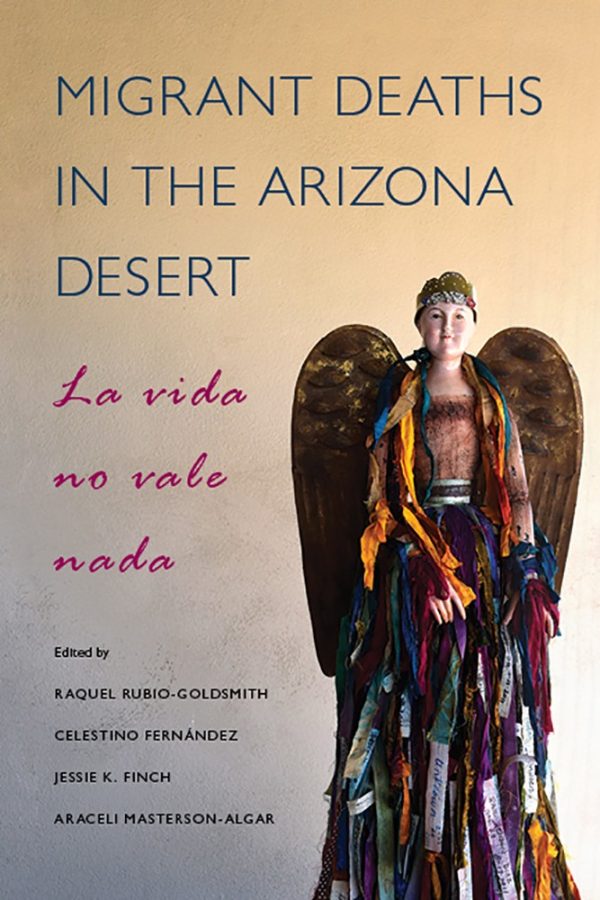University of Arizona sociology professor Celestino Fernandez was angry.
“People are dying — daily, almost. And no one seems to care — certainly not the government,” he said during “And the Deaths, Disappearances and Deportations Continue … No Vale Nada La Vida,” a symposium held at the Global Justice Center on Saturday, Feb. 17.
The event sought to bring attention to the physical and social dangers faced by migrants who cross the Sonoran Desert into Arizona. The symposium was a follow-up to “Migrant Deaths in the Arizona Desert: La vida no vale nada,” a 2016 book written by various UA scholars.
RELATED: DACA community and allies respond to President Trump’s State of the Union
The evening included three panels that each focused on a different “death” migrants face: the literal death that often occurs while crossing the desert, the “ambiguous death” that happens when migrants disappear and the “social death” that occurs when migrants are deported.
Panelists included community leaders, experts and scholars.
The first panel on biological deaths included former Pima County legal defender and representative for Coalicion de Derechos Humanos Isabel Garcia and UA assistant professor of sociology Daniel Martinez.
Garcia described a number of instances in which Latino migrants and Americans died due to the actions of U.S. border patrol agents, who were never reprimanded for their actions.
She called the U.S. border patrol a “murderous” agency and told the story of Carlos LaMadrid, a U.S. citizen who was shot by a border patrol agent while fleeing police officers in Cochise County.
Martinez spoke about the history of border enforcement and the government’s transition to targeting the border itself under the Immigration Reform and Control Act.
He also said the number of migrants who die at the hands of smugglers is overestimated, compared to those who die due to the harsh, desert environment or an encounter with border patrol agents.
The panel on disappearances included Robin Reineke, a representative of the Colibri Center for Human Rights, and Eddie Canales, the director of the South Texas Human Rights Center.
Reineke told the story of Karen Flores, a migrant whose mother disappeared in the desert. She cited Flores’ years of waiting to identify her mother’s body as evidence of “disappearance as a torture method” and the “systematic exclusion” migrants experience at the hands of government agencies.
The panel on migrant deportation included Margo Cowan, an immigration lawyer and representative of Keep Tucson Together, and Zaira Livier, a UA student and representative of LUPE Tucson.
Cowan talked about the history of exploitation of migrant workers in the U.S. and how the threat of deportation was used as a mechanism to control these workers.
RELATED: OPINION: Immigration rhetoric dehumanizes undocumented people
Livier told her own family’s immigration story and described the various fates of U.S.-raised individuals who were deported.
Jessie K. Finch, one of the editors of “Migrant Deaths” and assistant professor at Stockton University, said the event aimed to use personal anecdotes and statistics to raise awareness about the policies that cause migrant deaths and, most significantly, serve as a call to political action.
“This goes from being a personal tragedy and something terrible that happened to recognizing the political and structural forces that knowingly created this crisis on the border,” Finch said.
Follow Jahnavi Akella on Twitter









